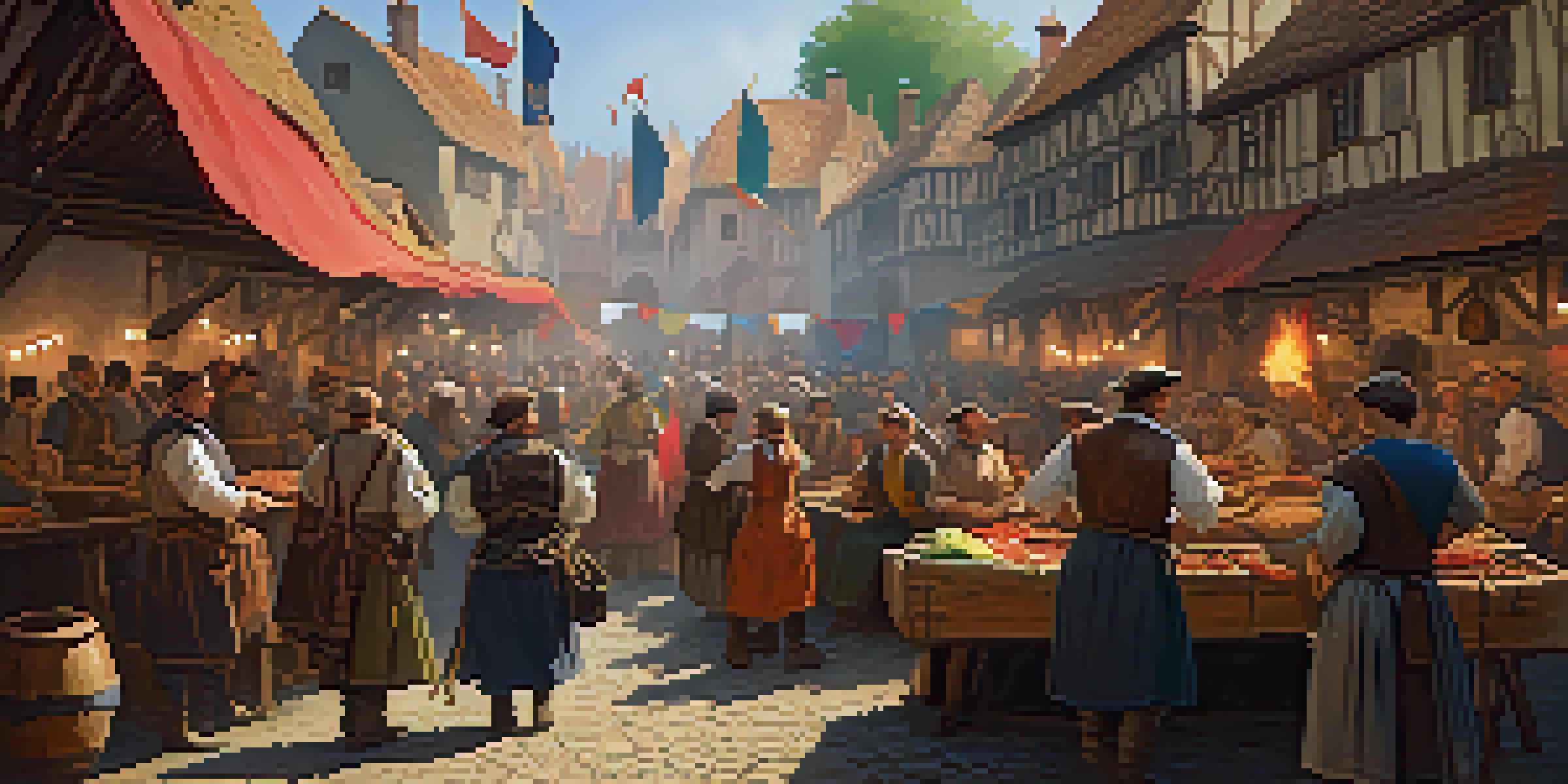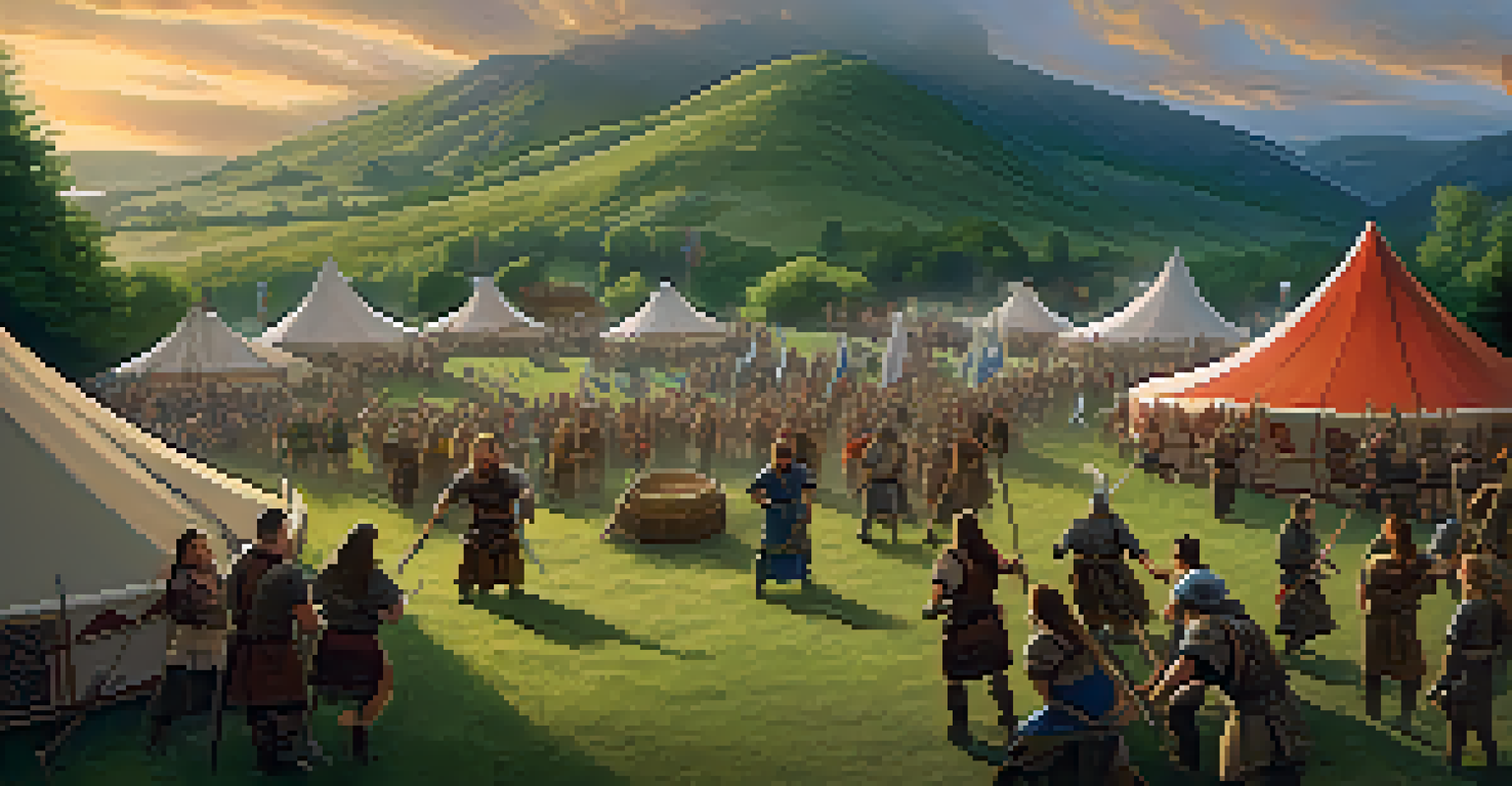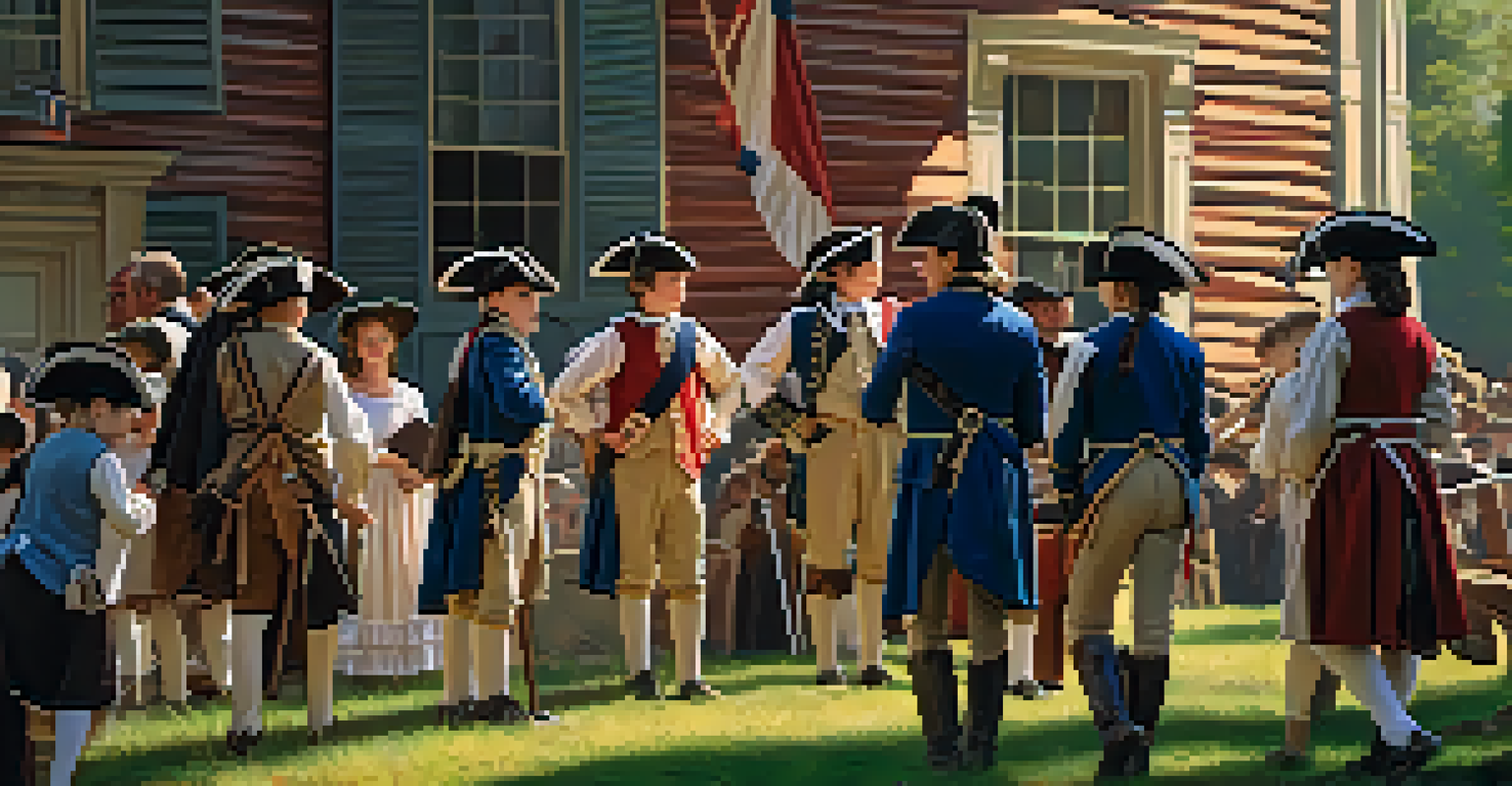How Historical Festivals Bring Eras to Life for Visitors

Historical Festivals: A Window into the Past
Historical festivals serve as vibrant windows into different eras, allowing visitors to step back in time. With carefully curated activities, these events recreate the sights, sounds, and even the smells of bygone days. Whether it's the clanging of blacksmiths at a medieval fair or the aroma of roasted meats at a Renaissance festival, each element contributes to a richly immersive experience.
History is not a burden on the memory but an illumination of the soul.
These festivals often showcase traditional crafts, costumes, and food, offering visitors a taste of life as it was lived centuries ago. Participants often dress in period attire, further enhancing the authenticity of the experience. This not only makes learning about history fun but also helps people connect with the past in a tangible way.
Moreover, the stories told through these festivals highlight the social, cultural, and political aspects of the times, making history relevant and relatable. By engaging multiple senses, historical festivals transform history from dull textbooks into memorable experiences that resonate with attendees.
Engagement Through Interactive Experiences
One of the standout features of historical festivals is their interactive nature, inviting visitors to participate rather than just observe. Attendees can join in activities like archery, sword fighting, or traditional dance, making learning an active experience. This hands-on approach allows people to engage with history on a personal level.

For instance, at a Viking festival, visitors might experience what it’s like to craft their own shield or taste traditional Viking fare. Such activities foster a deeper understanding of the skills and lifestyles of past societies, turning passive spectators into enthusiastic participants. This engagement not only enhances enjoyment but also fosters a sense of community among attendees.
Engaging Learning Through Participation
Historical festivals invite visitors to actively engage in hands-on activities, transforming learning about the past into an immersive and enjoyable experience.
Furthermore, these festivals often include storytelling sessions where historians or actors present tales from the past. This blend of entertainment and education captivates audiences, making complex historical events accessible and enjoyable for all ages.
Reinforcing Cultural Identity Through Celebration
Historical festivals also play a crucial role in reinforcing cultural identity. By celebrating significant events, traditions, and customs, they create a sense of pride among participants and attendees. This is particularly important in multicultural societies, where festivals can highlight the rich tapestry of different heritages.
To know nothing of what happened before you were born is to remain a child forever.
For example, a Native American powwow not only showcases traditional dances and music but also educates visitors about the history and ongoing struggles of Indigenous peoples. Such festivals promote understanding and respect for diverse cultures, encouraging visitors to appreciate the complexity of history.
In this way, historical festivals act as a bridge between the past and present, reminding us of our roots while fostering a sense of belonging. They encourage people to celebrate their heritage and share it with others, creating a continuous dialogue about culture and identity.
Education Made Fun: Learning with a Twist
One of the most appealing aspects of historical festivals is their ability to make education fun. Schools and families alike often attend these events, providing a relaxed environment where learning occurs naturally. The vibrant atmosphere, combined with engaging activities, transforms traditional education into an exciting adventure.
For instance, children can learn about the American Revolution by participating in reenactments or exploring historical exhibits. These experiences help solidify knowledge by allowing kids to see and feel history rather than just read about it. Such immersive learning experiences foster curiosity and a love for history that lasts a lifetime.
Strengthening Cultural Identity
These festivals celebrate traditions and customs, fostering pride and understanding in diverse cultural heritages within communities.
Additionally, many festivals provide educational workshops led by experts, offering insights into various aspects of history. These workshops not only deepen understanding but also inspire attendees to explore history further, creating enthusiastic advocates for the past.
Building Community Connections Through Shared Experiences
Attending a historical festival often fosters a sense of community among visitors, as they share in the experience together. Whether it’s bonding over a shared love of history or participating in group activities, these events create lasting connections. Such gatherings provide an opportunity for people from diverse backgrounds to come together and celebrate common interests.
Moreover, local businesses often get involved in festivals, strengthening community ties. Vendors may sell handmade crafts or traditional foods, showcasing local talent while supporting the economy. This collaboration between event organizers and local businesses enhances the overall festival experience and promotes community spirit.
As attendees engage with one another and the history being presented, they build relationships that can extend beyond the festival itself. These connections foster a sense of belonging and encourage ongoing participation in community events, creating a vibrant social fabric.
Economic Benefits: Boosting Local Tourism
Historical festivals are not only enriching experiences; they also provide significant economic benefits to local communities. By attracting visitors, these events stimulate tourism, leading to increased spending in the area. Restaurants, hotels, and shops all see a boost during festival weekends, contributing to the local economy.
For example, a Civil War reenactment might draw thousands of visitors, resulting in packed hotels and bustling restaurants. This influx of tourists can provide a much-needed financial lift to small towns, making these festivals vital for local businesses. Additionally, many festivals offer employment opportunities, from temporary positions to ongoing roles in event planning.
Economic Boost for Local Communities
By attracting tourists, historical festivals stimulate local economies, providing significant financial benefits to businesses and creating job opportunities.
Furthermore, the exposure gained from hosting a successful festival can lead to more visitors in the future. Positive experiences often result in word-of-mouth recommendations, encouraging others to explore the area and its offerings, thus creating a lasting impact on local tourism.
Preserving History: The Role of Festivals in Heritage Conservation
Historical festivals also play a crucial role in the preservation of culture and heritage. By celebrating traditions and practices, these events help keep them alive for future generations. This active participation in history ensures that valuable customs and knowledge are not lost over time.
For instance, festivals often include workshops where artisans share traditional skills, such as weaving or pottery making. These sessions not only preserve techniques but also inspire new generations to take an interest in their cultural heritage. This transmission of knowledge is vital for maintaining a vibrant cultural landscape.

Moreover, many festivals collaborate with historical societies and museums to ensure accuracy and authenticity. This partnership helps create a comprehensive understanding of the past, reinforcing the importance of preserving history for educational purposes and cultural appreciation.